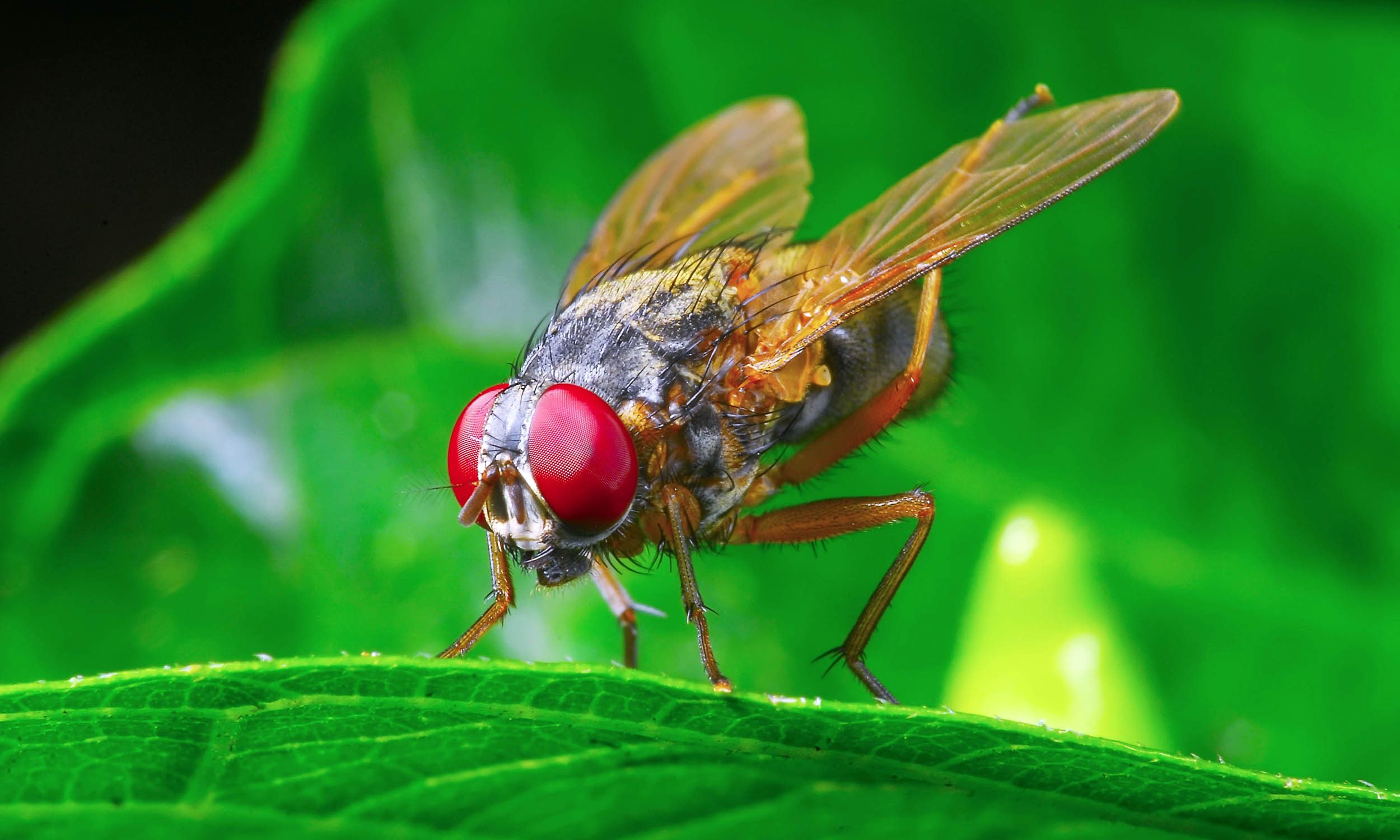
The sight of male fruit flies buzzing in a confined space might seem like a typical science experiment. However, researchers made an intriguing discovery regarding their reactions to a rotating disk.
While many of the flies opted to steer clear of the disk, a handful actively leaped onto it, exhibiting surprisingly prolonged stays.
Dr. Wolf Huetteroth from the University of Leipzig suggests that these observations could pave the way for new inquiries into how body awareness evolves in various organisms.
Purposeful Spins
Many people regard fruit flies as insignificant beings buzzing around overripe fruit. Yet recent research indicates that these insects may exhibit behaviors similar to play. Such findings challenge conventional beliefs about insect behavior.
“By employing various carousels, we accumulated and analyzed nearly seven years of video data,” states Dr. Tilman Triphan, the lead author of the study.
Researchers established multiple rotating platforms beneath a thin glass cover. While some flies rushed to the edges, others repeatedly returned to the carousel.
Unique Preferences
A segment of the flies sought out the spinning disk, riding it multiple times. These individuals remained on the disk for extended durations, while their counterparts avoided it entirely. Their actions appeared intentional rather than random or coerced.
One key observation was how these adventurous flies accessed the spinning platform.
“We were able to differentiate between those flies that walked on purpose to the carousel and those that jumped on in a haphazard manner. This distinction indicated that unplanned visits were quite rare among the engaging flies,” explains co-author Dr. Clara H. Ferreira, an assistant professor at Northumbria University.
The Importance of Body Awareness
The repeated engagement with the rotating disk appears linked to proprioceptive feedback, which pertains to the body’s awareness of its position and motion.
If certain flies are actively pursuing this additional sensory input, they may be experiencing some hidden advantage. This bears resemblance to behaviors in mammals like rats, which often partake in rough-and-tumble activities that enhance their coordination.
Some flies seem to prefer spinning over indulging in meals, implying a potential benefit stemming from the dynamic motion.
Interestingly, these insects didn’t appear to gain any obvious benefit beyond what seems to be sheer enjoyment.
Voluntary Spins Over Coercion
While curiosity is often attributed to higher animals, insects seldom receive credit for it.
This study was conducted in a tranquil environment, with consistent observation over several days to capture authentic behavior, free from artificial pressures directing the flies onto the disk.
The setup consciously minimized any threats that might compel the flies to remain. If the spinning disk induced anxiety, the flies had the option to easily retreat.
Contrarily, some opted to return willingly. This volitional behavior lends credence to the notion of an authentic playfulness.
The Significance for Humans
“This research could provide insights into how humans develop a keen sense of body awareness,” Huetteroth explains.
The key may lie in how experiencing spinning sensations enhances the brain’s ability to navigate physical space. As these flies appear to intentionally seek out additional movement, they may be training themselves to adapt and respond effectively to unexpected motion.
Similar mechanisms are evident in many species that enjoy roller coasters or spinning rides. Researchers believe that the brain learns from such experiences, strengthening internal models of balance and spatial awareness.
If such instincts are observable in a small insect, it suggests that the motivation to engage in these activities may have ancient evolutionary roots.
Choosing Spins Over Simplicity
The flies had easy access to food and water, as well as corners to rest undisturbed. Despite these more tranquil options, some chose to engage with the spinning disk.
This behavior did not contribute to their survival, indicating a motivational drive beyond basic needs like hunger or fear.
Researchers have utilized open-field tests to assess anxiety and caution in animals.
Typically, animals tend to stay close to the edges when feeling anxious, whereas the carousel-seeking flies ventured toward the center and remained there, defying usual fear-induced behavior.
Future Directions for Research
Currently, scientists have only scratched the surface in understanding how fruit flies navigate between exploration, feeding, and spinning. The genetic tools available for studying fruit flies may help illuminate the neural mechanisms underlying this playful behavior.
Future genetic research may identify which specific neural circuits reward flies for their spinning actions.
Ultimately, a deeper understanding could unveil how controlled motion influences an organism’s internal mapping.
This concept may have implications for other species, including humans, as they learn to navigate complex movement and interactive environments.
The findings are documented in the journal Current Biology.
—–
If you enjoyed this article, subscribe to our newsletter for captivating articles, exclusive content, and the latest news.
Explore more on EarthSnap, a free app created by Eric Ralls and Earth.com.
—–









